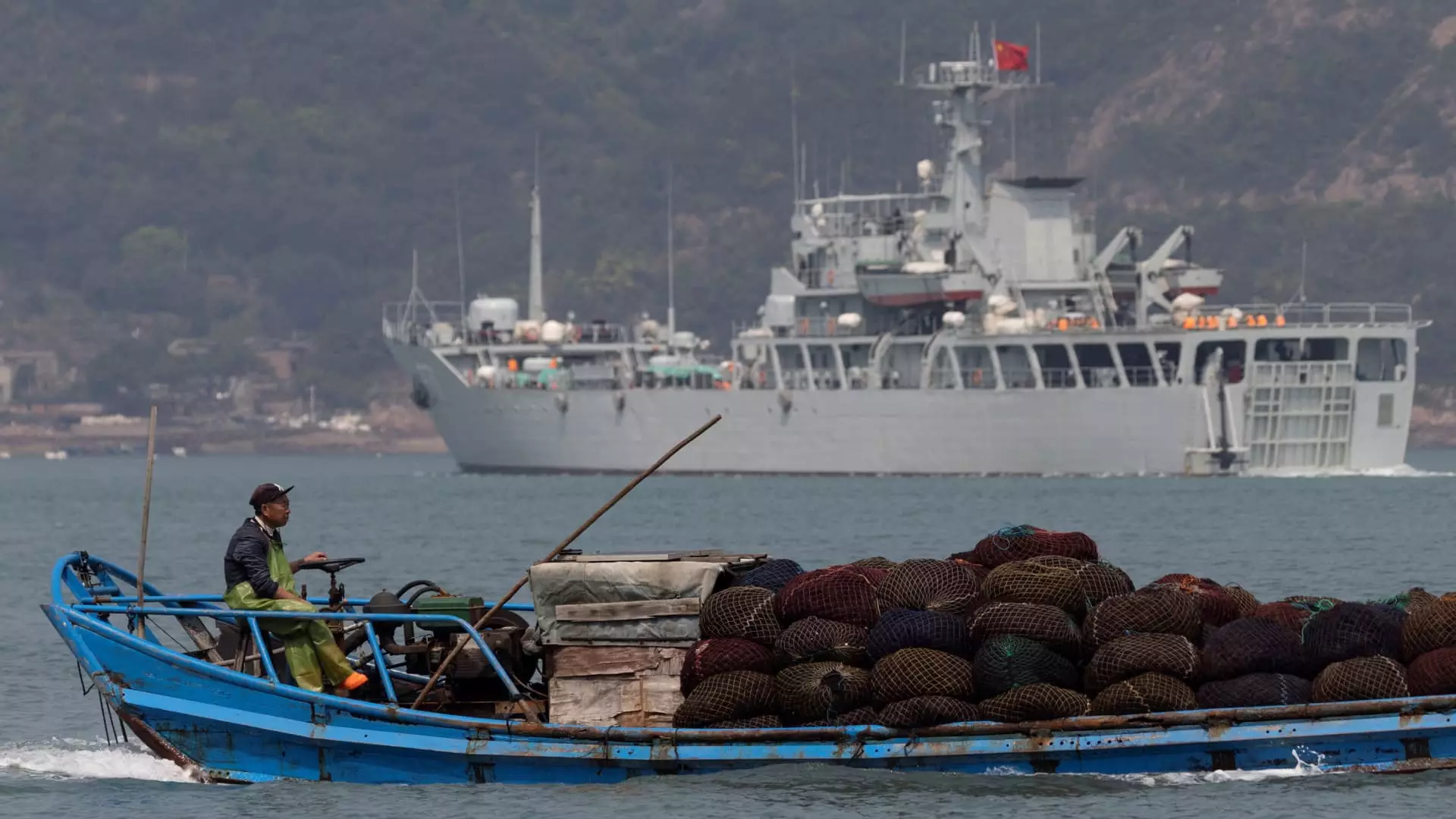China’s recent surge in military activities around Taiwan has raised concerns about the potential for accidental clashes and the escalation of conflict, according to Taiwan’s defense minister. Over the past two weeks, Taiwan has witnessed numerous fighter jets, drones, bombers, warships, and even China’s aircraft carrier, the Shandong, operating in close proximity to the island. Beijing, which considers Taiwan as part of its territory, has been conducting such drills to assert its sovereignty and exert pressure on Taipei. With the increased frequency of Chinese activities, there is a growing fear that an accidental incident could trigger a broader conflict, a situation that Taiwan is deeply worried about.
Taiwan’s defense minister, Chiu Kuo-cheng, emphasized the risks associated with the growing number of military maneuvers near the island. Warships from China’s southern and eastern theatre commands have been conducting joint operations off Taiwan’s eastern coast, increasing the potential for aircraft, ships, and weapons-related activities. Both sides need to be vigilant and exercise caution to prevent any inadvertent escalation. However, China has remained silent on the matter, with its defense ministry refraining from commenting on the drills.
China’s Aggressive Military Posturing
China’s actions off Taiwan’s east coast are indicative of its mounting assertiveness and display of power projection far beyond its own shores. Traditionally, Taiwan has relied on its mountainous east coast, particularly its major air bases, as a defensive strategy in the event of a conflict. However, China’s recent military activities challenge this strategy and highlight its ability to operate further away from its own coastline. This aggressive posturing has raised concerns within Taiwan and the international community regarding China’s intentions in the region.
The Absence of a Conducive Environment
While China has historically conducted large-scale military exercises between July and September, Taiwan’s defense ministry reported a decrease in China’s drills in recent days. However, this does not alleviate concerns about the potential for conflict, especially given the lack of a conducive environment for peaceful resolution. Taiwan has expressed its commitment to maintaining calm and avoiding escalation, but it also asserts its refusal to tolerate repeated provocations from China. So far, China has refrained from entering Taiwan’s territorial seas or airspace, but the continued military activities near the island remain a cause for apprehension.
The Need for Diplomatic Engagement and Conflict Prevention
The escalating tensions in the Taiwan Strait necessitate diplomatic efforts to defuse the situation and foster peaceful engagement. Increased communication channels between the two sides can help reduce misunderstandings and create opportunities for dialogue. Open dialogue and negotiations guided by mutually acceptable principles can provide a platform for resolving disputes and building trust. The international community plays a crucial role in encouraging all parties involved to prioritize diplomacy and conflict prevention over military posturing.
Stability in the Asia-Pacific region is of paramount importance, and any conflict or escalation of tensions has the potential to disrupt this delicate balance. Maintaining peace and stability should be the shared goal of all stakeholders. Confidence-building measures, transparency, and adherence to international norms and laws are fundamental to fostering a stable and peaceful environment. It is imperative for all parties involved to exercise restraint, engage in peaceful dialogue, and work towards a peaceful resolution that respects the interests and rights of all nations in the region.
The increasing frequency of China’s military activities around Taiwan poses a significant risk of accidental clashes and the escalation of conflict. The need for caution, vigilance, and diplomatic engagement cannot be overstated in order to prevent any inadvertent incidents and uphold regional stability. The international community must play an active role in encouraging peaceful resolutions and deterring militaristic provocations.


Leave a Reply